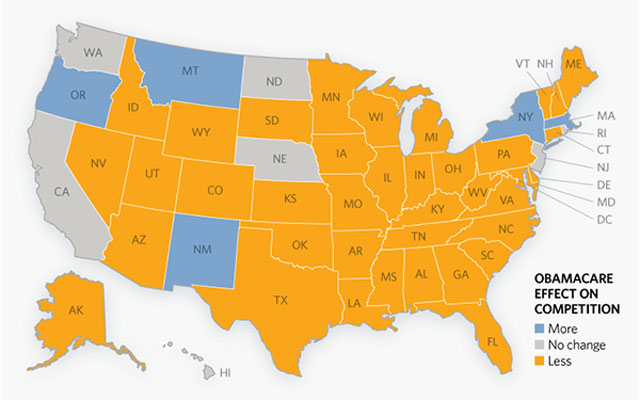Most of the Obamacare repeal attention has been on the reconciliation process, but this is just one part of a grand strategy to repeal and replace the disastrous Patient Protection and Affordable Care Act (PPACA). Or, in the words of the House Speaker, one phase in a three-phase system. The House of Representatives has already been successful in passing some “Phase Three” reforms, which bodes well for taxpayers. Lawmakers deserve credit for keeping the fight to repeal Obamacare and reform our health care system going on all fronts.
The three-phase system was devised so lawmakers could effectively use all the tools available in order to make pro-taxpayer reforms and improve access to health care. Reconciliation, the first phase, is the legislative mechanism Republican lawmakers are using to repeal as much of PPACA as possible, within the confines of procedural restrictions. Reconciliation can be a double-edged sword: it lets the Senate take advantage of a narrow GOP majority, though at the same time it limits lawmakers to addressing specific, key pieces of PPACA with a budgetary impact, such as taxes and spending.
The second phase refers to the role of the Department of Health and Human Services (HHS) and its ability to roll back harmful regulations, such as an executive order issued in January that allows HHS to “waive defer, grant exemptions from or delay” rules established by the PPACA. Most believe that with this added leeway, HHS Secretary Tom Price could stop the enforcement of the “individual mandate,” the linchpin of Obamacare.
The third and final phase consists of the standalone pieces of legislation Congress can pass to enact health care reforms not covered by reconciliation or regulation. One of the earliest of these measures, H,R. 372, passed the House in March. This legislation would eliminate anti-trust protection for insurance companies. In a study by the Heritage Foundation, it was found that 38 states had seen a decrease in competition when they moved into PPACA exchanges as shown in the below map. By dumping antitrust protections, H.R. 372 would encourage more competitors to enter the market giving consumers more options and therefore a better chance at getting insurance that both fits their needs and budget.

More recently, the House passed, H.R. 1101, which would allow small businesses to pool their resources together in order to purchase better health insurance for their employees. Small businesses tend to lack the numbers to negotiate for better and cheaper insurance, a problem exacerbated by Obamacare. Enabling small businesses to join together and negotiate as a group gives them more leverage to purchase the best possible insurance for their employees.
Looking ahead, there is still much work to be done to turn around our ailing health care system, both at the federal and state level. For instance, it’s critical that “Phase Three” efforts include urgent action to repeal the Independent Payment Advisory Board, one of the most harmful Obamacare provisions which could lead to rationing of care by unaccountable bureaucrats.
Likewise, taxpayers should demand change on the state level to increase both the availability of insurance and care options. One state target ripe for repeal is Certificates of Need. Implemented in 37 states, these laws make it impossible for a medical provider to add new services without permission from the state government as well as competing providers. This atrocious regulation led to the death of an infant in 2012 and the inability of a doctor to open his own surgery practice. Eliminating Certificates of Need would boost competition and reduce the price of health treatments.
The reconciliation package working its way through Congress is a significant part of the plan to repeal and replace Obamacare. But it’s just one part of the multifaceted approach demanded in the face of a marketplace decimated by failed policies. Though Phase Three might not be getting all the attention, taxpayers should applaud this ongoing fight to restore the competition and innovation that consumers need.

